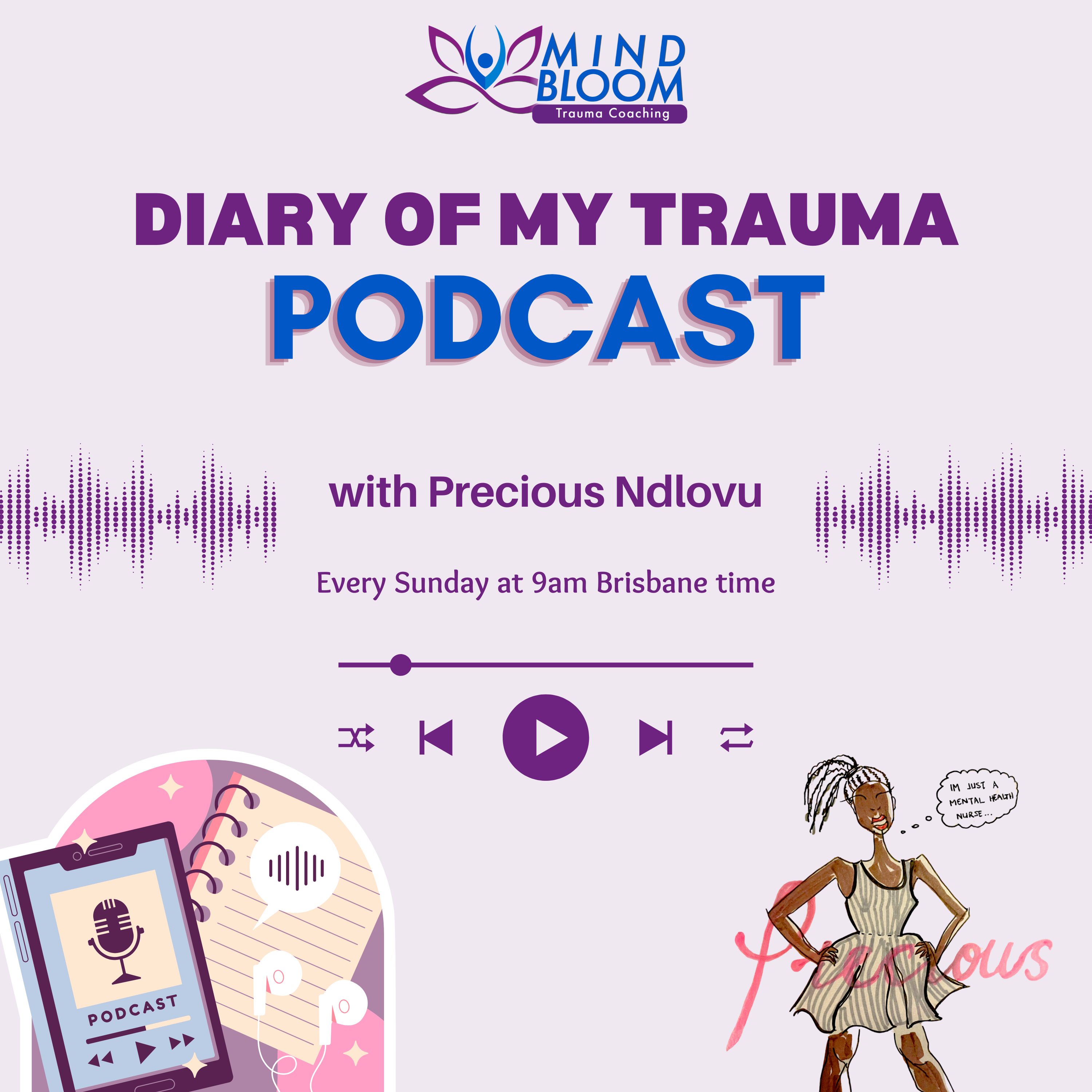Diary of My Trauma – Episode 4
Have you ever felt like something invisible is holding you back, even when opportunities are right in front of you? In this episode of Diary of My Trauma Podcast, host Precious Ndlovu delves into the concept of mental prisons—the internal limitations shaped by our past experiences and upbringing. Through her own story and expert insights, she uncovers how self-imposed restrictions affect self-worth, relationships, and personal growth, and shares powerful strategies to break free.
What is a Mental Prison?
A mental prison is an internal barrier created by past experiences, cultural norms, and trauma. These invisible chains can make it difficult to embrace opportunities, form meaningful relationships, or change harmful patterns. Even when external freedom exists, an individual might still feel trapped due to ingrained fears and limiting beliefs.
Precious’ Personal Journey
Precious recounts moving to England at 21, a moment that should have symbolized complete freedom. However, she soon realized that despite her physical independence, she was still bound by the restrictions of her upbringing. From rigid social habits (like always being home by 6 PM) to fear of new experiences, her past dictated her choices without her even realizing it.
Even in adulthood, these restrictions manifested in her relationships and self-esteem. Limited social interactions, maintaining a distant demeanor, and engaging in unhealthy relationships were all signs of her mental prison at work.
The Role of Learned Helplessness
One of the most powerful concepts discussed in this episode is learned helplessness—the psychological phenomenon where repeated negative experiences lead individuals to believe they have no control over their circumstances. When trapped in this mindset, people often fail to take action, even when escape is possible.
Precious explains how recognizing this behavior is the first step toward breaking free. By becoming self-aware and challenging negative thought patterns, individuals can start reclaiming their personal power.
Breaking Free: Practical Steps to Reclaim Your Freedom
If you recognize elements of a mental prison in your own life, don’t worry—freedom is possible. Precious shares simple yet powerful techniques for breaking down these barriers:
✔ Journaling: Write down one sentence about a painful experience and sit with the emotions it evokes for 30 seconds. This builds emotional awareness without overwhelming yourself.
✔ Self-Inquiry: Challenge negative thoughts by asking “why” questions without self-blame. Understand that limiting beliefs are often learned rather than inherent truths.
✔ Sharing with Trusted Individuals: Speaking about your emotions with someone you trust can help dissolve the walls of isolation and create space for healing.
✔ Rewriting Internal Narratives: Actively replace negative self-talk with empowering affirmations and beliefs that align with your goals.
Final Thoughts
Precious reminds us that mental prisons are not life sentences. By acknowledging our past conditioning, questioning limiting beliefs, and taking small but consistent steps, we can break free and step into a life of growth and empowerment.
🔗 For more resources and support, visit: www.mindbloomcoach.com
📱 Follow Mindbloom Coach on Instagram & TikTok: @mindbloomcoach depth and gain practical tools to support your journey.



